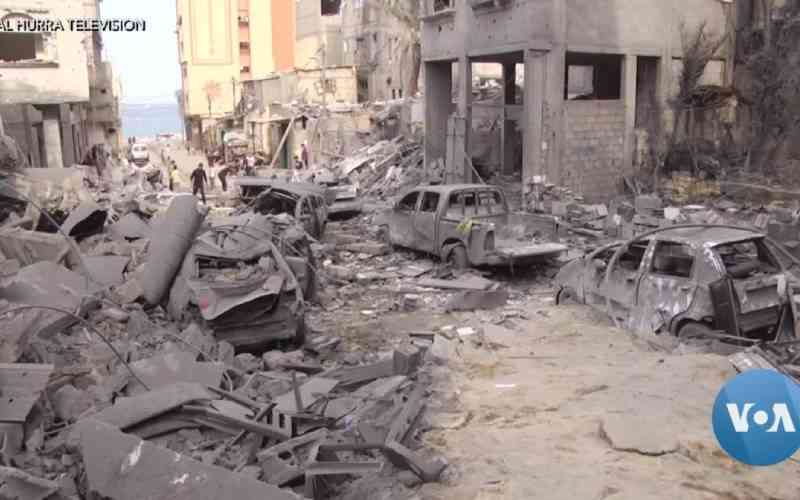×
The Standard e-Paper
Join Thousands Daily

Death toll soars as attacks continue in Israel-Hamas war. [VOA on the Scene]
The massacre of more than 1,000 Israelis on Saturday night marks the hugest onslaught against Israel since the Yom Kippur War, which started on October 6, 1973, exactly 50 years before Saturday's assault.